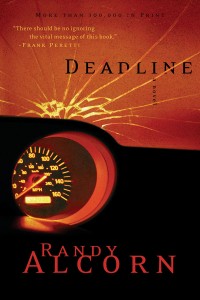Black & White
A friend and I were actually talking about today’s topic without her realizing it. She’s reading through the Aeneid, a book I have serious issues with. (Okay, so I’m an oddball English Lit major who dislikes most classics as a whole.) The girl makes me look illiterate, I admit. Our conversation, ironically, thrust me into the opposite role of what I wanted to discuss today, and my friend into the role of making my point unwittingly. She said:
Friend: It’s Aeneid time.
Me: I think he’s arrogant. Seriously, half my problem with Iliad, Odyssey, and Aeneid is I think they’re all a bunch of selfish jerks.
Friend: To us, yeah, he might be. To that culture, no. He was the son of Venus, a prince of Troy, a heroic warrior, and the leader of the Trojan refugees. To the people of his time, he was allowed to be a bit prideful. Being able to have pride and a bit of arrogance was part of what his status entailed. Achilles is also full of himself, again, because he deserved certain honors (honors that no self respecting man would have denied him)
and Agamemnon took them away from him. Odysseus is similar.
Me: Achilles whines like a teenage girl.
Friend: If they lived today, they’d look like arrogant idiots. In that time, all of their grievances are justifiable, as is their pride.
Me: And OdysseusâŚ. Eh. Hey, it took all of freshman year of college to get over people praying to the stupid Greek gods. The Greek pantheon would’ve made an atheist out of me.
Friend: Well, for Achilles, it wasn’t just that his girl had been taken way. Briseis was representative of honor that he had attained through warfare. Achilles had been told earlier in his life that he could either live a long life and never be known, or he could have eternal fame and die at Troy. He chose the second, and when Agamemnon took Briseis, he was basically taking away the thing that Achilles had chosen to live toward. hehe. They’re quite screwy.
Me: They make [a group of very adulterous characters we’re both familiar with] look chaste. I don’t know why it riles me like that. I mean, I get the logic; but the problem is I still can’t get over how crappy they were.
Friend: Hey, it’s just good you weren’t a Classics major. Otherwise, you wouldn’t have had a choice but to read those multiple times. =P
Me: Well, I did read them a couple times – at least excerpts. My classical world lit I read all three in a row. It’s funny what we harp on, though. I harp on how childish and arrogant they were; other people were bothered by Odysseus promising freedom to a captured Trojan spy, then killing him. Oddly, that part didn’t bother me.
Friend: I’m in the habit of just putting myself into the mindset of that time. Then I can understand what the poets were saying and I’m not really bothered by any of it.
Me: I can sometimes. The problem is, I might understand the mindset, but it doesn’t keep my hackles from going up.
As illustrated, my world doesn’t encounter much gray. I’m used to writing characters with some pretty twisted beliefs, so reciting a logical appeal to me doesn’t necessarily mean much. At the end of the day, it doesn’t matter how logical your thought process is if your initial assumptions are faulty. I’m that annoying chick who politely informs you I don’t care what your personal feelings are; those feelings don’t negate the truth of the matter.
But the truth is, my friend is right: The point is, regardless of my own worldview, I have to allow the culture of Aeneas and Odysseus to dictate the virtues and vices of the world in which they live, just like I have to accept where a pantheon of gods, goddesses, demigods, human sacrifices, liars, swindlers, and arrogant, man-whorish thugs behaving like pre-pubescent teenage girls is normative.
Going Gray
This black-and-white world of mine is simple, really. What is, is; and what isn’t, isn’t. Lying’s bad; honesty’s good. Marriage is good; divorce is bad. You know, until some family friends go through a divorce, or a person you admire is caught in a series of lies, or the mentor you wanted let you down. You find out your teachers aren’t perfect and your best bet is to be picky when choosing them. The world changes when you meet people whose political, moral, religious, and cultural views clash with your own–but I’m starting to think the more similar your worldviews are, the greater the paradigm shift when you realize the true meaning of “no one is perfect.”
Jesus had something going there when he asked, “Who is good but God alone?” He liked comments like that: “Was man made for the Sabbath or the Sabbath for man?” and “Which is lawful on the Sabbath, to save a life or destroy it?” Some of the people following him around picked up on Jesus’ quirk, asking things like “Who’s my neighbor?” and “Who sinned, this man or his parents?”
He said other things, too, like this:
Some Pharisees came to him to test him. They asked, âIs it lawful for a man to divorce his wife for any and every reason?â
 âHavenât you read,â [Jesus] replied, âthat at the beginning the Creator âmade them male and female,â and said, âFor this reason a man will leave his father and mother and be united to his wife, and the two will become one fleshâ? So they are no longer two, but one flesh. Therefore what God has joined together, let no one separate.â
âWhy then,â they asked, âdid Moses command that a man give his wife a certificate of divorce and send her away?â
 Jesus replied, âMoses permitted you to divorce your wives because your hearts were hard. But it was not this way from the beginning. I tell you that anyone who divorces his wife, except for sexual immorality, and marries another woman commits adultery.â
~Matthew 19:3-9
Part of what Jesus wanted people to do was think about what they were saying, think about what was rooted so deep in their own culture they couldn’t see the ramifications.
Yeah, not working on the Sabbath is good. But was man meant to be enslaved to a 24-hour period? Is it good to let a man die because it’s Saturday?
Is it good to place honor above justice, or pride over integrity?
Storyworlds force us to deal with the gray: wizard schools, talking animals, a band of thieves and outlaws, white collar criminals, thugs, violent heroes with no sense of abstinence, cheats and swindlers, killers, honor killings, interfaith marriages, and twisted theology.
The truth is, my reaction to The Iliad, Odyssey, and Aeneid probably says more about me than their composers. One, I have absolutely no respect for the Greco-Roman pantheon or the human/demigod heroes the poems herald. Two, while I might belittle their egos and overall morals, I didn’t even blink at the stark reality of the violence and war-ethics they demonstrated.
Authorial Silence
But does that mean Jesus condoned trivializing the Sabbath or divorce? Or, if you really want, does God condone necromancy, incorporating pagan worship into worship of him, polygamy, arrogance, swearing, getting drunk, cheating, interfaith marriage, or a dozen other things?
I’m just saying: Clearly, the culture around them didn’t see polygamy (or having a mistress/concubine) as adultery; didn’t see fault in throwing your concubine or your daughters to a mob; didn’t see fault in trying to kill a man for knocking over a shrine.
But does that really mean God thought those things were faultless, too? I mean, let’s face it – the sons of Korah got swallowed up by the earth for their rebellion, but nothing of the sort happened when some of the Hebrews tried to kill Gideon for tearing down his father’s shrine. God struck Aaron’s sons dead for performing their duties wrong, remember?
Then there’s Balaam. Remember Balaam’s donkey? That’s only part of the story. The rest is, he was apparently a pagan seer whom the either Midianite or Moabite king paid to put a curse on the Hebrews. The guy tried three times – and three times met instead the God of the Hebrews and blessed them. After that, Balaam told the king to try seducing the Hebrews instead.
And they succeeded.
So here’s the question: Was Balaam a true prophet, or a false one? Did he speak for the God of gods, or for any god?
You know, it’s funny, I had thought Balaam was a Hebrew seer until about two years ago when I read the story more closely. Balaam’s a diviner for hire. By most accounts, God shouldn’t have had anything to do with him.
But. . . he did.
There’s this odd balance of what the author meant and what the author’s personal worldview is. As a whole, my characters over the years have broken the entire Law ten times over. I’ve let whole nations indulge in selfish pleasures, pagan practices, mix pagan and Christian beliefs and practices, keep their terrible theology, and hang on to their vices paraded as virtues. Some encourage honor killings; others encourage greed; others encourage adultery. And if you tried to piece out my personal worldview by those of the worlds I’ve created, you’d be completely off-target.
Does God think prophecy for profit is good?
I mean, he did write this thing.
Does God think that summoning the dead is good?
Is it okay to vow to sacrifice the first thing you see when you get home, only to have your young daughter run out to greet you?
Is it good form in battle to make three long rows of captured soldiers and kill two of the three rows of men?
Is it good or bad to put your reputation as a good host over your family’s safety?
Is it good or bad to hang out with swindlers, thieves, homosexuals, drunks, drug addicts, adulterers, lazy people, and manipulators?
I mean, Paul writes twice that the OT was penned for our instruction.
The prophets claim that Sodom and Gomorrah testify against Judah and Israel; and that
“In spite of all this, [Israel’s] unfaithful sister Judah did not return to me with all her heart, but only in pretense,â declares the LORD. The LORD said to me, âFaithless Israel is more righteous than unfaithful Judah. Go, proclaim this message toward the north: Â Â Â ââReturn, faithless Israel,â declares the LORD, Â Â Â âI will frown on you no longer, for I am faithful,â declares the LORD, Â Â âI will not be angry forever” (Jeremiah 3.10-12).
Now, if you aren’t sure, Northern Israel was in rebellion from its inception. God took 10 tribes from the Davidic dynasty and gave them to a man named Jeroboam, but Jeroboam promptly wielded Jewish worship as a political tool and broke the entire Torah in an attempt to keep people from deserting him and returning to Solomon’s son Rehoboam. Most of the most infamous kings come from Northern Israel. Ahab and Jezebel’s granddaughter married a southern, Davidic king and promptly tried to wipe out the entire line of David. She all but succeeded, too. Their lines of succession are bloody; their entire mentality is one of rebellion; and they worship anything and everything under the sun. And when they do worship the One God, they worship in the exact manner God told them not to – Which is . . . where those Samaritans came from in the New Testament.
“Faithless Israel is more righteous than unfaithful Judah.” Now that’s a thought. But is God really suggesting that everything Northern Israel did was acceptable?
Go read those northern prophets sometime. Or find out what the Ten Lost Tribes are.
You know, every time Matt Chandler preaches out of Romans 1, he points out that God’s silence is worse than his wrath. In other words, if I’m doing something wrong, and my dad punishes me for it, then that’s one thing. But if my dad decided to just let me self-destruct, that’s another thing entirely.
Keep in mind . . . some of these cultures don’t exist anymore . . . at least, not as they were. Some of these people, history can’t even tell exactly what part of the world they actually existed in.
Sometimes, I create institutions for the sole purpose of destroying them. Sometimes, I create them to redeem them. Sometimes, I’m not concerned in the slightest their fate.
And sometimes, I have to accept that womanizing egomaniacs were acceptable in some cultures in order to engage the story world.
 No, this is not a manual for exobiological reproduction, alien mating rituals, or human-vampire hybridization. My apologies if that is what you expected when you arrived here. Given that the name of this blog is Speculative Faith, on which topic we spend a great deal of electronic ink, and Becky Miller just did a piece on hope in speculative fiction, I thought it might be a good time to launch into a series on love, and how it’s handled, or mishandled, in spec fic, Christian or otherwise, and how that might move us to action as readers and writers within the genre.
No, this is not a manual for exobiological reproduction, alien mating rituals, or human-vampire hybridization. My apologies if that is what you expected when you arrived here. Given that the name of this blog is Speculative Faith, on which topic we spend a great deal of electronic ink, and Becky Miller just did a piece on hope in speculative fiction, I thought it might be a good time to launch into a series on love, and how it’s handled, or mishandled, in spec fic, Christian or otherwise, and how that might move us to action as readers and writers within the genre.
































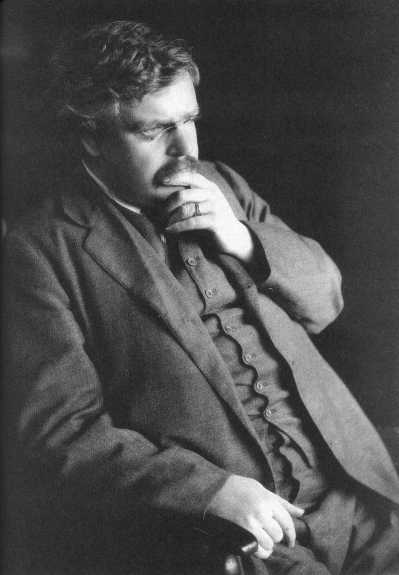
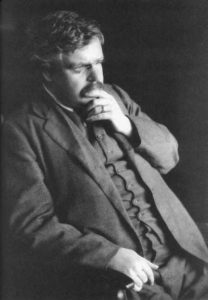


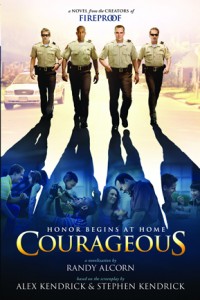 Many who watch the movie Courageous will want to learn more about the story than is in its two hours on screen. Â The novel is the equivalent of ten hours of screen time, and allows much more exploration of the characters, back-story and subplots as well as new dramatic scenes (without having to spend millions of dollars to produce them). When I tell people I wrote a novel based on the movie, they are excited and ask all kinds of questions. They love the idea of seeing the movie, then exploring it in the novel form, in characters and storyline and themes in greater detail at their leisure.
Many who watch the movie Courageous will want to learn more about the story than is in its two hours on screen. Â The novel is the equivalent of ten hours of screen time, and allows much more exploration of the characters, back-story and subplots as well as new dramatic scenes (without having to spend millions of dollars to produce them). When I tell people I wrote a novel based on the movie, they are excited and ask all kinds of questions. They love the idea of seeing the movie, then exploring it in the novel form, in characters and storyline and themes in greater detail at their leisure.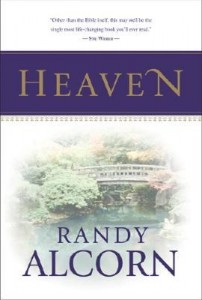

 Randy Alcorn is an author and the founder of Eternal Perspective Ministries (EPM), a nonprofit ministry dedicated to teaching principles of Godâs Word and assisting the church in ministering to the unreached, unfed, unborn, uneducated, unreconciled, and unsupported people around the world. âMy ministry focus is communicating the strategic importance of using our earthly time, money, possessions and opportunities to invest in need-meeting ministries that count for eternity,â Alcorn says. âI do that by trying to analyze, teach and apply the implications of Christian truth.â
Randy Alcorn is an author and the founder of Eternal Perspective Ministries (EPM), a nonprofit ministry dedicated to teaching principles of Godâs Word and assisting the church in ministering to the unreached, unfed, unborn, uneducated, unreconciled, and unsupported people around the world. âMy ministry focus is communicating the strategic importance of using our earthly time, money, possessions and opportunities to invest in need-meeting ministries that count for eternity,â Alcorn says. âI do that by trying to analyze, teach and apply the implications of Christian truth.â

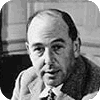
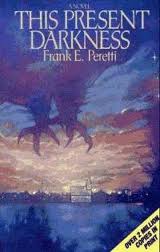
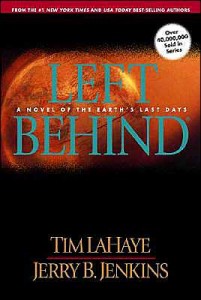
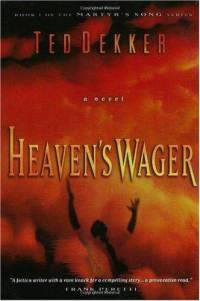








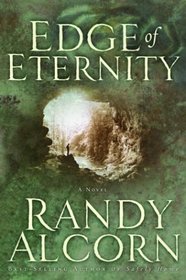 When I wrote my books
When I wrote my books 